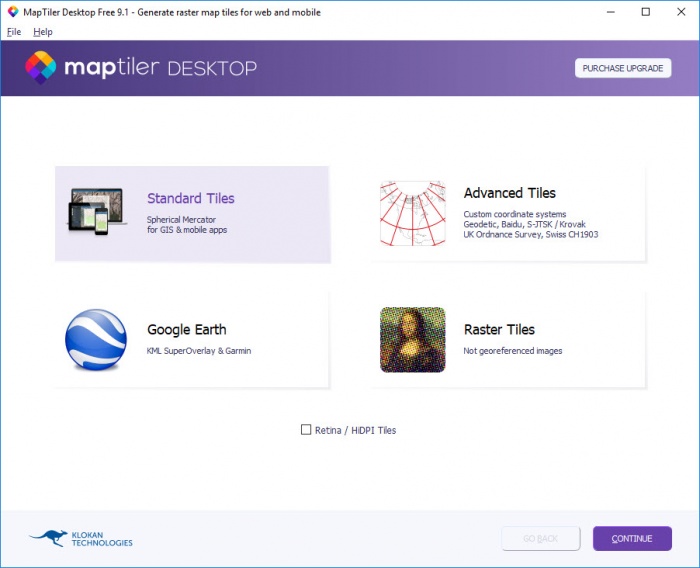

MBTiles is a file format for storing tilesets. I usually chose zoom levels from 14-19 when making indoor maps. Choose one of the options below and click on the button to purchase or start downloading.

Georeference the Map - Once you have everything you don’t want to see transparent, use MapTiler to georeference your PNG and produce a MBTile file.You can use Photoshop, GIMP (free) or /editor (free), which I used, to make the white border transparent. Make Border Transparent - Now that you have your floor plan, you want to make it transparent to make it easier to view.If you are not familiar with basemap editors, here is a review of Mapbox and Maptiler for beginners. Get Floor Plan - Usually your floor plan will come in a PDF. However, advanced customization might require GIS expertise.Watch the screencast below (no audio) to follow the entire process in detail.

#MAPTILER REVIEW SOFTWARE#
These are the basic instructions and explanation of the software and websites I used. Whenever you want your floor plans at your disposal, and you want them to be spatially referenced to your location, this process will work great. This easy indoor mapping process can be used for asset management, safety inspections, building inventory, risk inspections, property management, etc. MBTiles and MapTiler folder hosting with TileJSON, OGC WMTS, UTFGrid interaction and web interface. I’ve based my example around the Fulcrum, Mall Maintenance app which can be found in our App Gallery. I’ve chosen not to use QGIS or ArcMap, but instead am using inexpensive or free software that anyone can learn to use in less than an hour. This same process can be used with Fulcrum for creating small offline maps.
#MAPTILER REVIEW HOW TO#
I recently demonstrated to a Fulcrum customer how to georeference a floor plan of a mall for indoor use when conducting inspections of malls around the country.


 0 kommentar(er)
0 kommentar(er)
